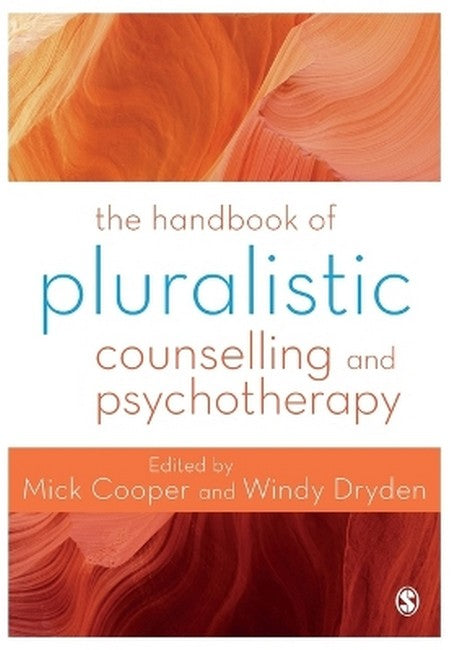Mick Cooper is Professor of Counselling Psychology at the University of Roehampton, where he is Director of the Centre for Research in Social and Psychological Transformation (CREST). Mick is a chartered psychologist, a UKCP registered psychotherapist, and a Fellow of the BACP. Mick is author and editor of a range of texts on person-centred, existential and relational approaches to therapy; including Working at Relational Depth in Counselling and Psychotherapy (2005, SAGE, with Dave Mearns), Pluralistic Counselling and Psychotherapy 2011, SAGE, with John McLeod) and Existential Therapies (2nd edn, 2017, SAGE). Mick has led a series of research studies exploring the processes and outcomes of humanistic counsel-ling with young people. Mick is the father of four children and lives in Brighton on the south coast of England. Windy Dryden is one of the leading practitioners and trainers in the UK in the Cognitive Behaviour Therapy (CBT) tradition of psychotherapy. He is best known for his work in Rational-Emotive Cognitive Behaviour Therapy (RECBT), a leading CBT approach. He has been working in the field of counselling and psychotherapy since 1975 and was one of the first people in Britain to be trained in CBT. He has published over 200 books and has trained therapists all over the world, in as diverse places as the UK, the USA, South Africa, Turkey and Israel. He is Emeritus Professor of Psychotherapeutic Studies at Goldsmiths, University of London.
Request Academic Copy
Please copy the ISBN for submitting review copy form
Description
Introduction to pluralistic counselling and psychotherapy - Mick Cooper, Windy Dryden PART 1: Fundamentals Assessment and formulation in pluralistic counselling and psychotherapy - John McLeod, Julia McLeod From goals to tasks and methods - Terry Hanley, Aaron Sefi, Zehra Ersahin Metatherapeutic communication and shared decision-making - Mick Cooper, Kate Martin, Fani Papayianni, Windy Dryden Systematic feedback through the Partners for Change Outcome Management System (PCOMS) - Barry Duncan, Jacqueline Sparks Client strengths and resources: Helping clients draw on what they already do best - Jacqueline Sparks, Barry Duncan Core counselling methods for pluralistic practice - Mick Cooper Part 2: Therapeutic orientations Humanistic approaches and pluralism - Terry Hanley, Adam Scott, Laura Winter Cognitive behavioural approaches and pluralism - Terry Boucher Psychodynamic approaches and pluralism - Laurence Spurling Existential approaches and pluralism - Mick Cooper, Gerhard Stumm Narrative approaches and pluralism - Rolf Sundet, John McLeod Integrative and eclectic approaches and pluralism - John McLeod, Rolf Sundet Part 3: Issues and Goals Helping clients address depression - John McLeod Helping clients address problematic anxiety - Windy Dryden Helping clients improve their interpersonal relationships - Meg John Barker Helping clients find meaning in grief and loss - Robert Neimeyer Helping clients address addictive behaviours - Thomas Mackrill, Bettina Jensen Helping clients address eating problems - Lynsey McMillan Helping clients with health issues - Julia McLeod, Mhairi Thurston, Kate Smith Helping clients who are suicidal or self-injuring - Andrew Reeves Part 4: Professional issues Difference and diversity in pluralistic counselling and psychotherapy - Laura Winter, Feng Guo, Katarzyna Wilk, Terry Hanley Boundaries: A pluralistic perspective and illustrative case study of the patient-led approach to appointment scheduling - Timothy A. Carey Ethics in pluralistic counselling and psychotherapy - Lynne Gabriel Supervision in pluralistic counselling and psychotherapy - Mary Creaner, Ladislav Timulak Training in pluralistic counselling and psychotherapy - Julia McLeod, Kate Smith, Mhairi Thurston Research and pluralistic counselling and psychotherapy - Terry Hanley, Laura Winter
I can recommend this book for any practitioners seeking a flexible way of integrating different approaches to therapy. I found it a stimulating read which gave me pause to reflect on my own practice. -- Andy Wilson

